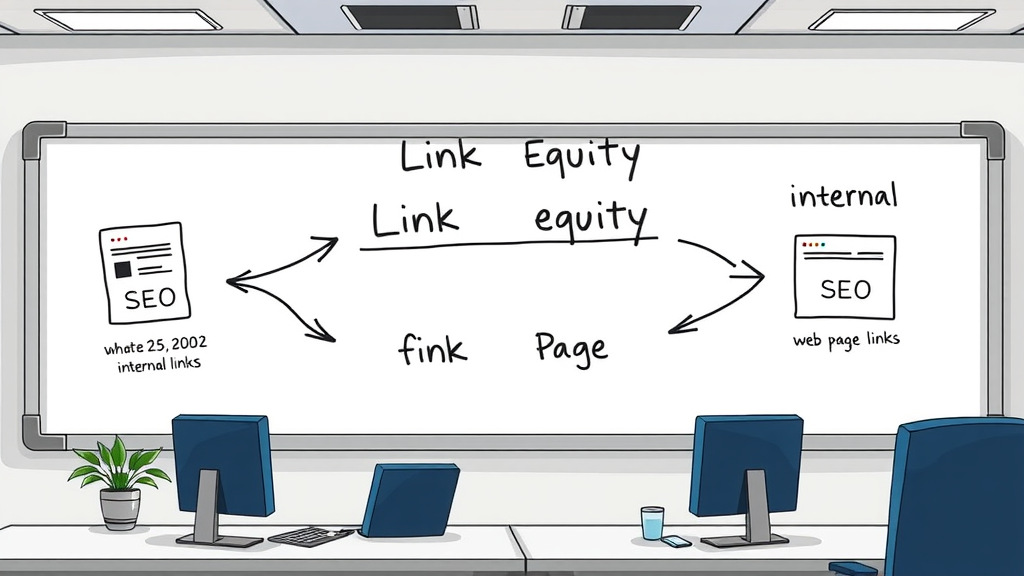Imagine this: Over 90% of online experiences begin with a search engine , but only a select few websites dominate the results page. What separates these high performers from the rest? It’s not luck— it’s their mastery of crucial search engine ranking factors . If you're ready to leap ahead in SEO ranking and outshine competitors, this comprehensive guide will break down everything you need to know—right now.
Unveiling Search Engine Ranking Factors: The Critical Elements Driving SEO Rank
"Over 90% of online experiences begin with a search engine, yet only a fraction of websites capture prime rankings due to mastering crucial search engine ranking factors."
- After reading this guide, you’ll discover:
- The most essential search engine ranking factors influencing SEO rank and google ranking
- How ranking factors shape your site’s visibility in search results
- Expert strategies and actionable tips for optimizing google ranking factors
- Answers to common questions about SEO ranking and how to rank higher

Understanding Search Engine Ranking Factors for Higher SEO Ranking
The foundation of any successful SEO strategy lies in demystifying and applying the search engine ranking factors that actually impact your position in search results. While Google and other search engines use hundreds of ranking factors, only a core subset truly determines whether your website rises or falls. To rank higher , it's critical to focus on elements like content quality, user experience, technical setup, and your backlink profile. For instance, a site with insightful articles that load quickly on mobile devices, and which has gained credible mentions from reputable sources, is exponentially more likely to achieve top spots in search engine results than a slow, poorly-organized, or thin-content site.
Consider a hypothetical business blog: If it regularly publishes well-researched guides, ensures quick loading times (optimizing page speed ), and earns backlinks from top industry voices, its SEO ranking can dramatically improve. Mastering the interplay between keyword placement , internal links, and clear site architecture is what transforms an average website into a search engine juggernaut. In the next sections, we’ll break these elements down so you can implement practical changes and boost your own ranking.
Defining Search Engine Ranking Factors: What Impacts SEO Rank
Search engine ranking factors are the signals or criteria that search engines like Google use to decide how to rank web pages in their results. These ranking factors range from content quality and relevance to a user’s query, to technical aspects such as mobile-friendliness, site speed, and secure HTTPS connections. Other powerful influences include the strength and nature of your site’s backlink profile and internal links, which can direct both users and search bots to your most valuable pages.
In practice, think of ranking factors as the algorithms’ assessment points for your digital assets. For example, a page that’s stuffed with keywords but lacks useful information will be penalized compared to one delivering genuine insights tailored to user intent. Mastering not just the existence, but the optimization, of these key ranking factors is your fast track to improving SEO rank and pulling ahead in search results.

Why Search Engine Ranking Factors Matter for Google Ranking and SEO Ranking
The importance of search engine ranking factors cannot be overstated. Each factor carries a unique weight in Google’s algorithm, directly influencing your website’s visibility and credibility. For businesses and creators aiming for organic growth, these factors are the difference between languishing on page 5 of the results page and enjoying a consistent stream of qualified leads from page one.
When you address each ranking factor—be it authoritative backlinks or seamless user experience —you make it exponentially easier for Google to recognize and reward your efforts. This not only improves your google ranking but can also reduce bounce rates, encourage deeper user engagement, and establish long-term brand authority within your industry.
| Ranking Factor | Impact on SEO Rank | Actionable Steps |
|---|---|---|
| Content Quality | High | Focus on original, useful, and relevant content |
| Page Speed | Medium | Optimize images, reduce server response times |
| Internal Links | Medium | Strategically link to related content across your site |
| User Experience | High | Ensure navigation clarity and mobile-friendliness |
| Backlinks | Very High | Earn links from high-authority websites |
Key SEO Ranking Factors and Their Role in Search Engine Success
Achieving and maintaining a top SEO rank is no accident—it's the direct result of paying close attention to Google’s most influential ranking factors. Let’s break these down:
Google Ranking Factors: Core Elements in Modern SEO Ranking
- Content quality and structure: The backbone of search engine ranking
- Page speed and mobile optimization: Impact on engine ranking and user experience
- Backlink profile: Authority signals for google ranking factors
- Internal links: Essential for distributing link equity and improving search results
Content Quality: Creating quality content means offering original insights, answering real search queries, and structuring content logically with relevant headings and keywords. Without valuable content, no amount of technical finesse can secure a strong Google ranking .
Page Speed & Mobile Optimization: Today, page speed is a confirmed ranking factor for both desktop and mobile search. Ensuring your site loads quickly—especially on a mobile device —reduces bounce rate and increases your likelihood to rank higher. A mobile-optimized site is now vital, as Google predominantly uses mobile-first indexing.
Backlink Profile & Internal Links: High-quality backlinks serve as trust signals, telling Google your site is an authority in its field. Meanwhile, smart internal link strategies distribute link equity across your site, improving crawling and lifting the ranking of target pages.

How Search Results Reflect the Power of Ranking Factors
The impact of mastering search engine ranking factors becomes most evident when you analyze search results . High-ranking sites typically boast spotless technical SEO, exceptional user experience, powerful backlinks, and rich content targeting user intent. For example, if you scan the first page for any competitive keyword, you’ll spot a pattern: optimized title tags, strong internal links, swift page loads, and multimedia-rich articles.
Google’s algorithm meticulously sifts through all eligible web pages, rewarding those that best combine relevance and trustworthiness. If your site consistently appears in prime positions, it means you’ve successfully aligned your content and technical profile with Google’s expectations regarding search engine ranking factors .
Crucially, engine ranking isn't a one-time achievement. It’s an ongoing process—those who consistently audit and update their SEO strategies based on current ranking signals stay ahead, while others fade into search result obscurity.
On-Page Strategies for Optimizing Search Engine Ranking Factors

Optimizing Content Quality for SEO Rank and Search Engine Ranking
Quality content remains king in the realm of SEO ranking factors . To climb the ranks, your articles and landing pages must thoroughly address target queries using clear, concise, and engaging language. This means including supportive data, well-placed keywords, and multimedia elements such as videos or infographics—all while maintaining natural readability.
Effective content optimization also requires frequent updates to keep information current and building topical authority by covering a subject in-depth. Use structured headings, bullet points, and internal links to guide visitors (and search engines) through your pages. For example, an FAQ section anticipating user questions not only enhances user experience but provides quick answers that may earn prominent positions, like featured snippets, in search results.
Internal Links and Their Impact as a Google Ranking Factor
- Best practices for embedding internal links
- Internal links vs. external links in google search algorithms
- Examples of optimized anchor text and link structures
Internal links are crucial but often underutilized Google ranking factors . Embedding links between related articles, product pages, or services helps both users and search engines understand the site’s architecture and hierarchy. Best practices include placing links contextually within relevant sentences, employing descriptive anchor text that clues users (and Google) into what to expect, and ensuring each important web page is accessible within three or fewer clicks from the homepage.
Unlike external links, internal links distribute existing link equity throughout your site, lifting the profile of target pages. For instance, linking all your blog posts about SEO ranking back to a core “SEO Basics” guide will strengthen that guide’s visibility in search results.

The Importance of Page Speed and User Experience for SEO Ranking
"Sites with fast loading speeds see up to 70% longer session times and a much greater chance to rank higher in search results."
Page speed directly impacts both user behavior and search engine algorithms. A delay of even one second can spike your bounce rate and lower seo rank as search engines interpret slow performance as a bad user experience . Tools like Google PageSpeed Insights or GTmetrix help you diagnose issues, from unoptimized images to bloated scripts, so you can shave precious seconds off your load times.
Beyond speed, user experience encompasses mobile responsiveness, uncluttered navigation, and interactive design. Websites that offer seamless experiences across devices are rewarded with better rankings and higher engagement metrics, especially as mobile device usage continues to dominate.

Off-Page SEO: Enhancing Search Engine Ranking Factors Beyond Your Website
While on-site SEO gets plenty of attention, off-page SEO activities are just as critical. These external signals—mostly backlinks, social shares, and brand mentions—heavily influence your search engine ranking . Earning backlinks from respected industry sources acts as a vote of confidence, signaling to Google that your content is valuable and authoritative.
Off-page strategies are not limited to link building. Positive reviews, PR features, and social media amplification all contribute to a diversified set of ranking factors, helping you rank higher in competitive spaces.
Earning Backlinks: The Most Influential Google Ranking Factors
Backlinks remain among the most influential google ranking factors . Developing high-quality, relevant backlinks requires relationship building, outreach, and content that merits sharing. Focus on guest blogging, engaging in industry discussions, contributing research, and leveraging digital PR strategies for effective results.
Remember, not all backlinks are equal. Links from established, high-domain-authority sites within your niche carry vastly more weight than those from untrusted or irrelevant sources. Prioritize natural link acquisition over artificial schemes, as Google’s algorithms can penalize manipulative behavior.
Authority, Trust, and Off-Page Signals Affecting Search Engine Rankings
- Effective outreach for building high-quality backlinks
- Measuring trustworthiness and authority for SEO ranking factor improvements
Building authority and trust is a slow but vital process. Sites with strong author bios, clear contact details, and lots of positive reviews tend to earn higher trust signals, which improve seo ranking . Off-page signals, including trust flow and citation flow, can be measured using tools such as Majestic or Moz. Target sites that are highly regarded in your space, and always monitor your backlink profile for toxic links that could harm your search engine ranking .

Technical SEO Ranking Factors to Supercharge Your SEO Rank
Strong technical SEO is essential for helping both users and search engines access, understand, and trust your website. Overlooking key technical ranking factors can undo your other efforts, even if your content is world-class.
Two critical technical areas are site architecture and technical optimization for crawling and indexing. Proper site structure helps search engines easily understand and navigate your web pages, ensuring important content is indexed and ranked correctly.
Site Architecture and Internal Links as Ranking Factors
A robust site architecture simplifies navigation and ensures page authority flows efficiently through internal links . Organize your site in pyramid-like tiers: home, category, subcategory, and detail pages. Connect related pages using meaningful internal links to support the discovery and ranking of new content.
For example, if your SEO blog has main guides supported by related case studies and updates, linking internally between these resources both enhances the user experience and sends clear signals to search engines about your content’s depth and relevance.

Mobile-First Indexing and Technical Optimization for Search Engines
- Implementing schema markup for rich search results
- Ensuring crawlability and indexation in modern search engines
Google now ranks most sites based on their mobile version. Make sure your site uses responsive design, loads quickly on any device, and displays critical information without intrusive pop-ups. Adding schema markup can help search engines better understand your content, making you eligible for rich snippets and enhanced listings in search results .
Regularly audit your site for crawl errors using Search Console, correct broken links, and ensure XML sitemaps and robots.txt files are up-to-date. Always use secure protocols like HTTPS to boost trust and protect user data.
| Technical Ranking Factor | SEO Benefit | Implementation Example |
|---|---|---|
| Mobile-Responsiveness | Better user experience, higher SEO ranking | Responsive site design |
| Crawl Errors | Improved indexing | Fix 404 errors and use proper redirects |
| HTTPS Security | Increased trust, SEO rank | Install SSL certificates |

How to Monitor and Measure Search Engine Ranking Factors Effectively
Knowing what influences seo rank is half the battle—tracking and measuring your progress is equally critical. Use analytics platforms and specialized SEO audit tools to evaluate which changes drive tangible improvements. Set benchmarks for your core keywords and regularly monitor your fluctuations in search engine results .
Advanced tools allow you to set alerts for drops in google ranking factors , track backlink growth, and analyze page speed performance. These insights should guide your ongoing SEO strategies, helping you respond quickly to algorithm changes and emerging competition.
Choosing SEO Tools for Ranking Factor Analysis
A handful of powerful SEO tools can handle everything from technical audits to ongoing keyword tracking: SEMrush, Ahrefs, Moz, and Google Search Console are industry favorites. These platforms allow you to identify opportunities for improvement across all major seo ranking factors —from backlinks and site speed to technical errors and mobile usability.

Key Metrics to Track for Improving SEO Ranking and Google Ranking Factors
Always track metrics that matter: organic traffic , keyword rankings, bounce rate , conversion rates, and growth of quality backlinks. Technical markers like crawl errors, index status, and site speed should be monitored weekly. These data points expose site strengths and weak links in your SEO chain, helping you adjust quickly for long-term gains.
Answers to Your Top Questions on Search Engine Ranking Factors
What determines search engine ranking?
Search engine rankings are determined by a combination of core factors such as content quality, backlink profile, technical SEO, page speed, mobile optimization, and user experience. Search engines evaluate each site based on how well it aligns with user intent, delivers value, and functions smoothly across all devices. Consistently improving these areas is key to climbing higher in search results .
What are the top 3 ranking factors of Google?
While Google uses over 200 signals, experts agree the top three ranking factors are: 1) High-quality, relevant content that answers the searcher’s needs; 2) High-authority backlinks from trusted websites; and 3) Seamless, mobile-friendly user experience with fast loading speeds. Focusing on these essentials will support sustained growth in SEO rank .
What is a ranking factor in SEO?
A ranking factor in SEO is any criterion that search engines use to determine the relevance and authority of a web page in their index. These include on-page factors (like keyword use and content length), technical ones (like site speed and HTTPS), and off-page signals (like backlinks and social mentions).
What are the 5 important concepts of SEO?
The five foundational concepts are: 1) Content quality and relevance; 2) Strong keyword research; 3) Technical optimization (such as site structure and speed); 4) Building backlinks from credible sites; and 5) Enhancing user experience and engagement signals.
Frequently Asked Questions on SEO Ranking Factors
- How often do google ranking factors change? Google makes hundreds of updates each year. While core principles remain stable, details like algorithm weightings or new signals do evolve, so stay informed and agile.
- Are internal links as critical as backlinks for engine ranking? Internal links are very important for distributing authority within your site. While quality backlinks exert more influence, internal linking supports crawlability and helps target pages rank higher.
- What is the best way to optimize content for search engines? Focus on addressing user intent, using relevant keywords naturally, structuring your content with headers and bullet points, and supporting claims with data or examples. Regular updates also help sustain rank.
Essential Takeaways on Search Engine Ranking Factors to Rank Higher
- Focus on core SEO ranking factors: content quality, backlinks, and user experience.
- Always stay updated with the latest google ranking factors and search engine algorithms.
- Implement both on-page and off-page strategies to rank higher in search results.
Ready to Master Search Engine Ranking Factors? Connect With Us.
Now is the time to take control of your search engine ranking factors and elevate your SEO rank. Let's have a chat, call 908-641-9211 to unlock the next level of search result success!
To deepen your understanding of search engine ranking factors, consider exploring the following authoritative resources:
-
“Your Guide to SEO Ranking and Ranking Factors” : This comprehensive guide delves into the specific SEO ranking factors confirmed by Google, including content relevance, quality, and the importance of backlinks. ( semrush.com )
-
“SEO Ranking Simplified: 8 Vital Factors that Drive Traffic” : This article outlines key elements such as mobile-friendliness, onsite optimizations, and the significance of creating an XML sitemap to enhance your website’s SEO performance. ( disruptiveadvertising.com )
By reviewing these resources, you’ll gain valuable insights into optimizing your website to achieve higher search engine rankings.
 Add Row
Add Row  Add
Add 




Write A Comment